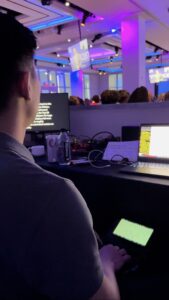Last week the Federal Communications Commission (FCC) voted to address the cost of visitation phone and video calls, according to a July 18 press release issued by the federal agency. These reforms were passed in a bipartisan vote by the federal agency and come as a result of the Martha Wright-Reed Just and Reasonable Communications Act sponsored by Senator Tammy Duckworth of Illinois and signed into law by the president last year.
It was also reported that the FCC “ruled that telecom providers must make ‘advanced communications services’ (i.e., audio or video communications services and electronic messaging), and any equipment associated with those services accessible for people with disabilities,” according to the Prison Policy Initiative, a think tank dedicated to researching over-criminalization.
“When it comes to the new accessibility rules issued by the FCC to ensure equal access to calls for incarcerated persons, it is my hope that jails and prisons will retain the services of certified professional captioners to provide accurate realtime services,” said NCRA Executive Director Dave Wenhold, CAE, PLC. “NCRA certified captioners have perfected their services in order to provide accurate captioning, unlike automatically generated captions which rely on artificial intelligence.”
NCRA highlighted in a white paper published late last year the potential pitfalls of artificial intelligence (AI) on the country’s judicial system, including how certain aspects of AI fail to accurately capture the spoken word instead trying to predict it, resulting in a final interpretation that can be riddled with inaccuracies.
“NCRA’s professional captioners would certainly welcome the opportunity to play a small but crucial role in delivering these newly enacted reforms,” Wenhold concluded.









